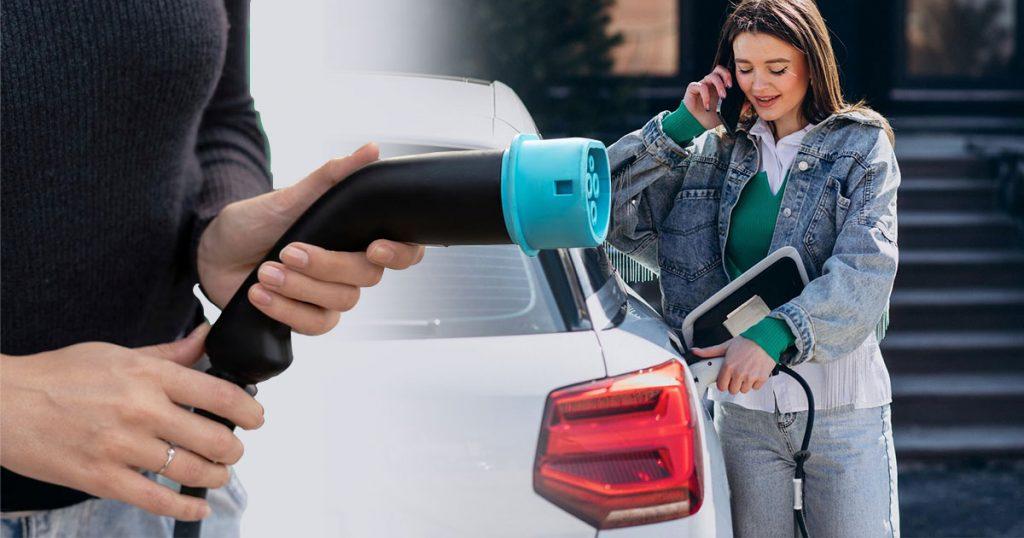As electric cars (EVs) become more popular, many people consider getting EV chargers for their homes. Learn about the cost of installing an EV charger, the things that affect these costs, and ways to save money. Knowing these things can help you decide if you want to put in an EV charger at home.
Getting Started With Types of EV Chargers
Before we discuss the cost of installing an EV charger at home, it’s crucial to grasp the two primary types of EV chargers designed for home use:
- Level 1 Charger: This charger is like the one you use for regular household items. It slowly charges your EV when you plug it into a normal 120-volt outlet. It often comes with your EV purchase and is perfect for charging overnight.
- Level 2 Charger: This charger requires a special 240-volt outlet, similar to what your stove or dryer uses. It charges your EV faster than Level 1 chargers, which is great for daily charging.
- Level 3 Charger: Known as direct current fast charging, it is commonly found in public charging stations like Tesla’s Supercharger locations and is primarily used for commercial purposes.
Charging stations and cables are available in various standards, depending on the plug type. Since these plugs aren’t interchangeable, ensuring that your home charger has the correct one is crucial.
Factors Affecting the Cost of Installing EV Chargers at Home
Several factors can influence the cost of installing an EV charger at home:
- Charger Type: Level 2 chargers cost more than Level 1 chargers because they need more parts and installation work.
- Electrical Panel Capacity: You may need to improve your home’s electrical panel if it can’t handle an EV charger. Doing this might cost a lot because it involves adding or changing electrical parts.
- Distance to Charging Location: The farther your EV charger is from your electrical panel, the more materials and work are needed. This increases the overall cost of installation.
- Permits and Inspections: Some areas require you to get permits and have inspections done for EV charger installations. This adds to the total cost of setting up your charger.
- Additional Electrical Work: Depending on your home’s wiring, you may need to make changes or add new wiring for the EV charger. This extra electrical work may increase the cost of fitting.
How much does it cost to install an electric car charger?
The cost of installing an EV charger at home varies greatly depending on these factors. Here’s a rough estimate:
- Level 1 charging cables are often included with new EVs, but you can also buy them separately if you want an extra. It usually costs between $300 and $600 for Level 1 charger parts. Additionally, consider the installation labor costs, which can amount to $1,000 or more.
- Level 2 charging stations are normally sold separately, though some car manufacturers may offer discounts for purchase and installation. Installing a level 2 charger at home typically ranges from $500 to $700, but some models can be more expensive.
- The various parts that comprise Level 3 chargers can cost tens of thousands of dollars. Level 3 chargers typically cost between $12,000 and $45,000 when installed.
Tips to Save Money in Installing EV Charger at Home
While installing an EV charger can be expensive, there are ways to reduce the cost:
- Location Matters: Placing the charger near the electrical panel can save money on wiring and labor because less material is needed.
- Use Existing Wiring: If you can, use the wiring already in your home to connect the charger. This avoids the need for extra electrical work and keeps costs down.
- Consider DIY: If you feel confident working with electricity, installing the charger can save you money. Make sure you follow the rules for safety and the laws in your area.
- Look for Incentives: Some utility companies and governments give rewards or refunds for installing EV chargers. It may be possible to lower the overall cost of the work by doing this.
Understand the Cost to Install EV Charger at Home
Installing an EV charger at home can be beneficial for EV users. Many things can affect the cost, but knowing these and taking steps to lower them can make it cheaper. If you pick the right charger and placement method, you can enjoy the benefits of having an electric car without spending much money.
